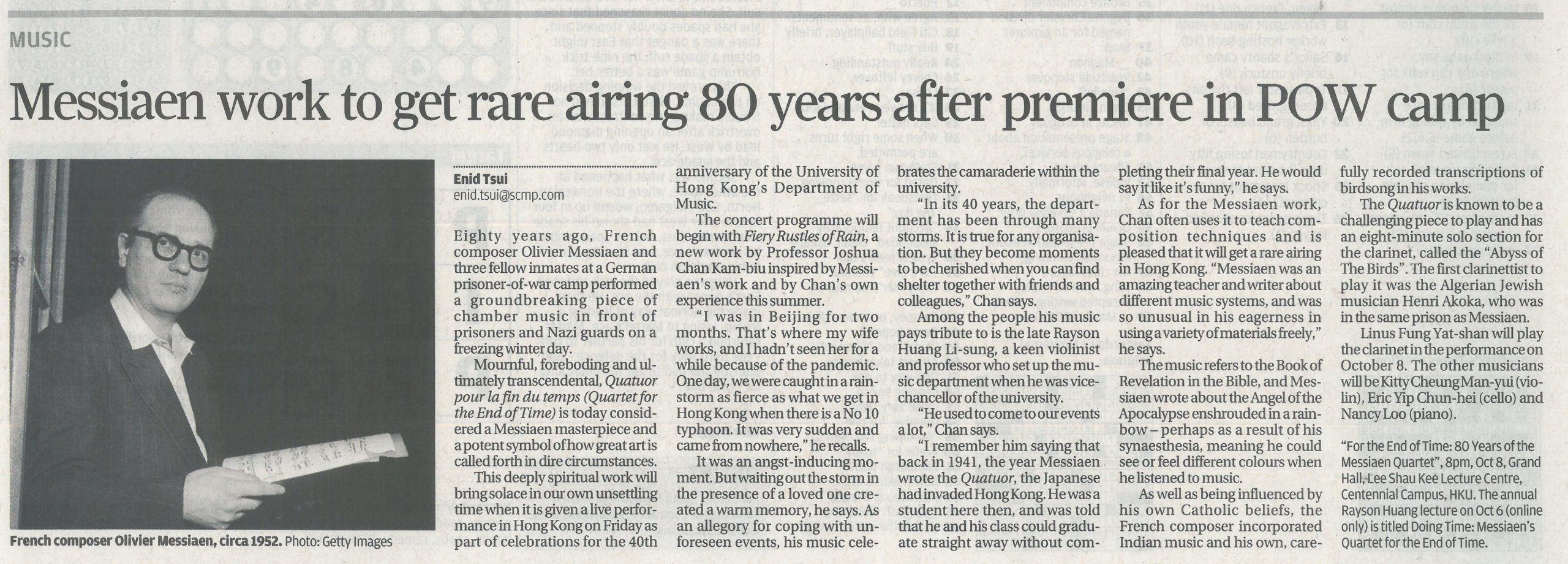南華早報 South China Morning Post
by Enid Tsui
05 OCT 2021

Eighty years ago, French composer Olivier Messiaen and three fellow inmates at a German prisoner-of-war camp performed a groundbreaking piece of chamber music in front of prisoners and Nazi guards on a freezing winter day.
Mournful, foreboding and ultimately transcendental, Quatuor pour la fin du temps (Quartet for the End of Time) is today considered a Messiaen masterpiece and a potent symbol of how great art is called forth in dire circumstances.
This deeply spiritual work will bring solace in our own unsettling time when it is given a live performance in Hong Kong on October 8 as part of celebrations of the 40th anniversary of the University of Hong Kong’s Department of Music.
The concert programme will begin with Fiery Rustles of Rain, a new work by Professor Joshua Chan Kam-biu inspired by Messiaen’s work and by Chan’s own experience this summer.
“I was in Beijing for two months. That’s where my wife works, and I hadn’t seen her for a while because of the pandemic. One day, we were caught in a rainstorm as fierce as what we get in Hong Kong when there is a No 10 typhoon. It was very sudden and came from nowhere,” he recalls.
It was an angst-inducing moment. But waiting out the storm in the presence of a loved one created a warm memory, he says. As an allegory for coping with unforeseen events, his music celebrates the camaraderie within the university.
“In its 40 years, the department has been through many storms. It is true for any organisation. But they become moments to be cherished when you can find shelter together with friends and colleagues,” Chan says.
Among the people his music pays tribute to is the late Rayson Huang Li-sung, a keen violinist and professor who set up the music department when he was vice-chancellor of the university.
“He used to come to our events a lot. I remember him saying that back in 1941, the year Messiaen wrote the Quatuor, the Japanese had invaded Hong Kong. He was a student here then, and was told that he and his class could graduate straightaway without completing their final year. He would say it like it’s funny,” he says.
As for the Messiaen work, Chan often uses it to teach composition techniques and is pleased that it will get a rare airing in Hong Kong. “Messiaen was an amazing teacher and writer about different music systems, and was so unusual in his eagerness in using a variety of materials freely,” he says.
The music refers to the Book of Revelation in the Bible, and Messiaen wrote about the Angel of the Apocalypse enshrouded in a rainbow – perhaps as a result of his synaesthesia, which meant that he could see or feel different colours when he listened to music.
As well as being influenced by his own Catholic belief, the French composer incorporated Indian music and his own, carefully recorded transcriptions of birdsong in his works.
The Quatuor is known to be a challenging piece to play and has an eight-minute solo section for the clarinet, called the “Abyss of The Birds”. The first clarinettist to play it was the Algerian Jewish musician Henri Akoka, who was in the same prison as Messiaen and who later escaped from a moving train to avoid being sent to a concentration camp. (The composer himself was released from prison in 1941, had a long and distinguished career of teaching and writing music and died at the age of 83 in 1992.)
Linus Fung Yat-shan will play the clarinet in the performance on October 8. The other musicians will be Kitty Cheung Man-yui (violin), Eric Yip Chun-hei (cello) and Nancy Loo (piano).

